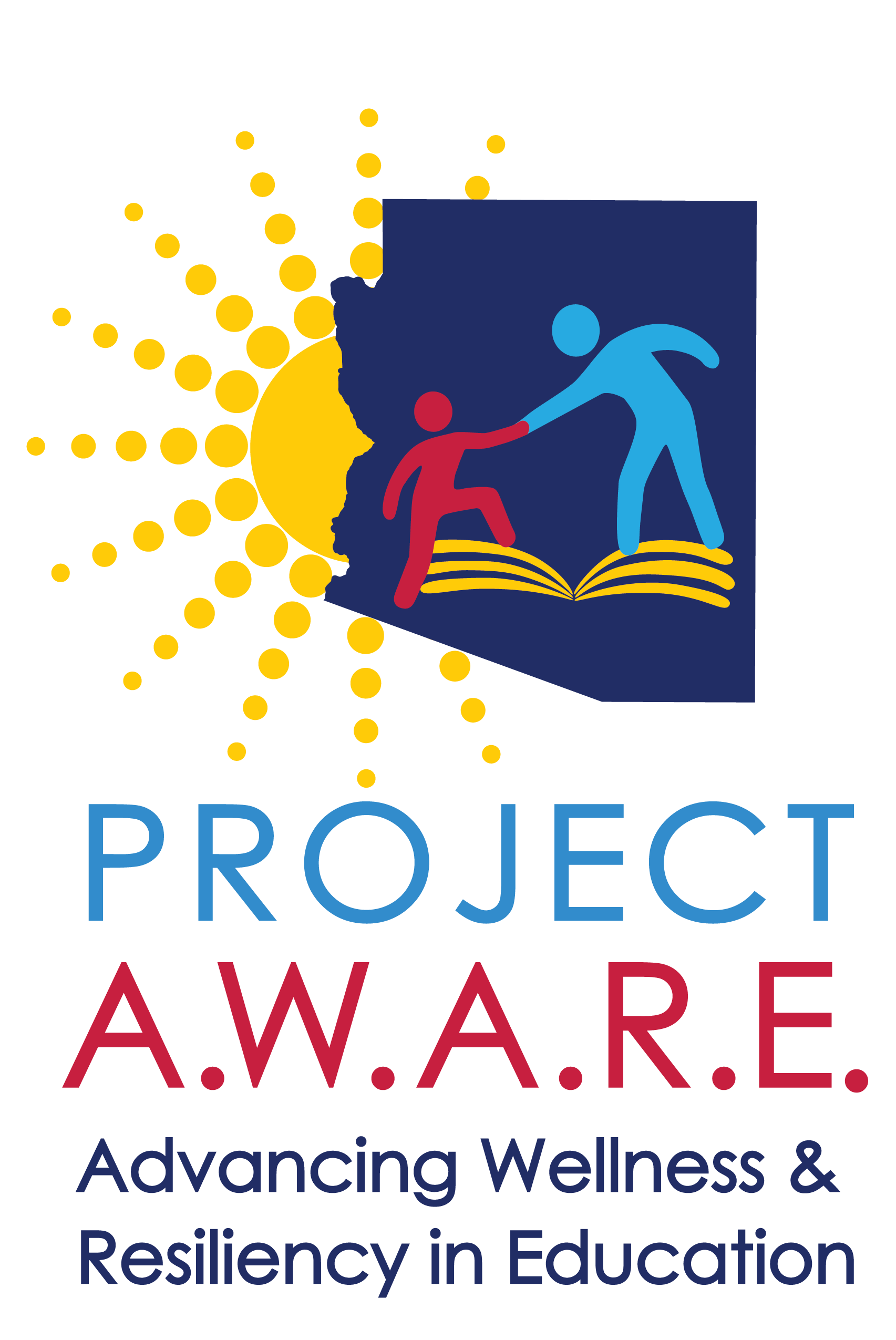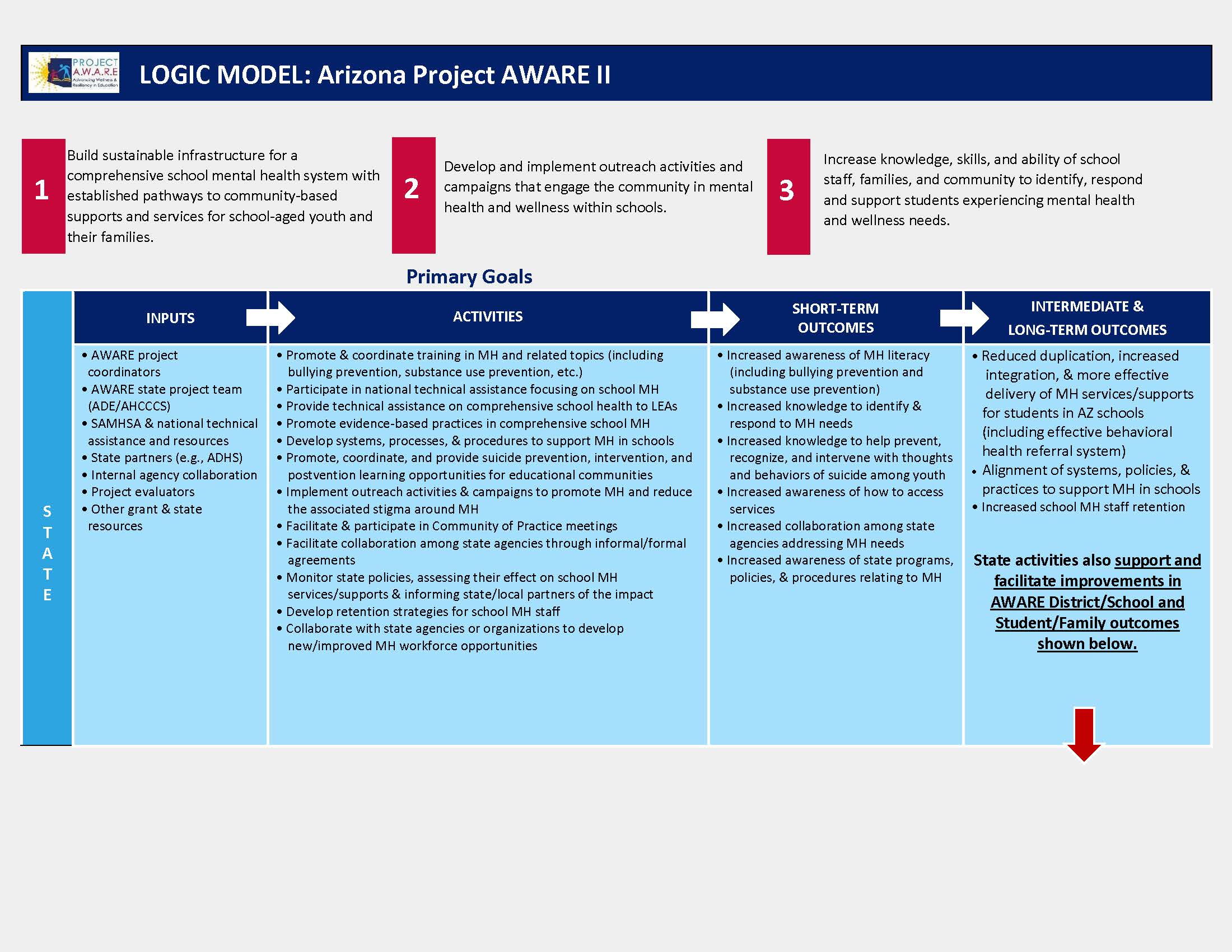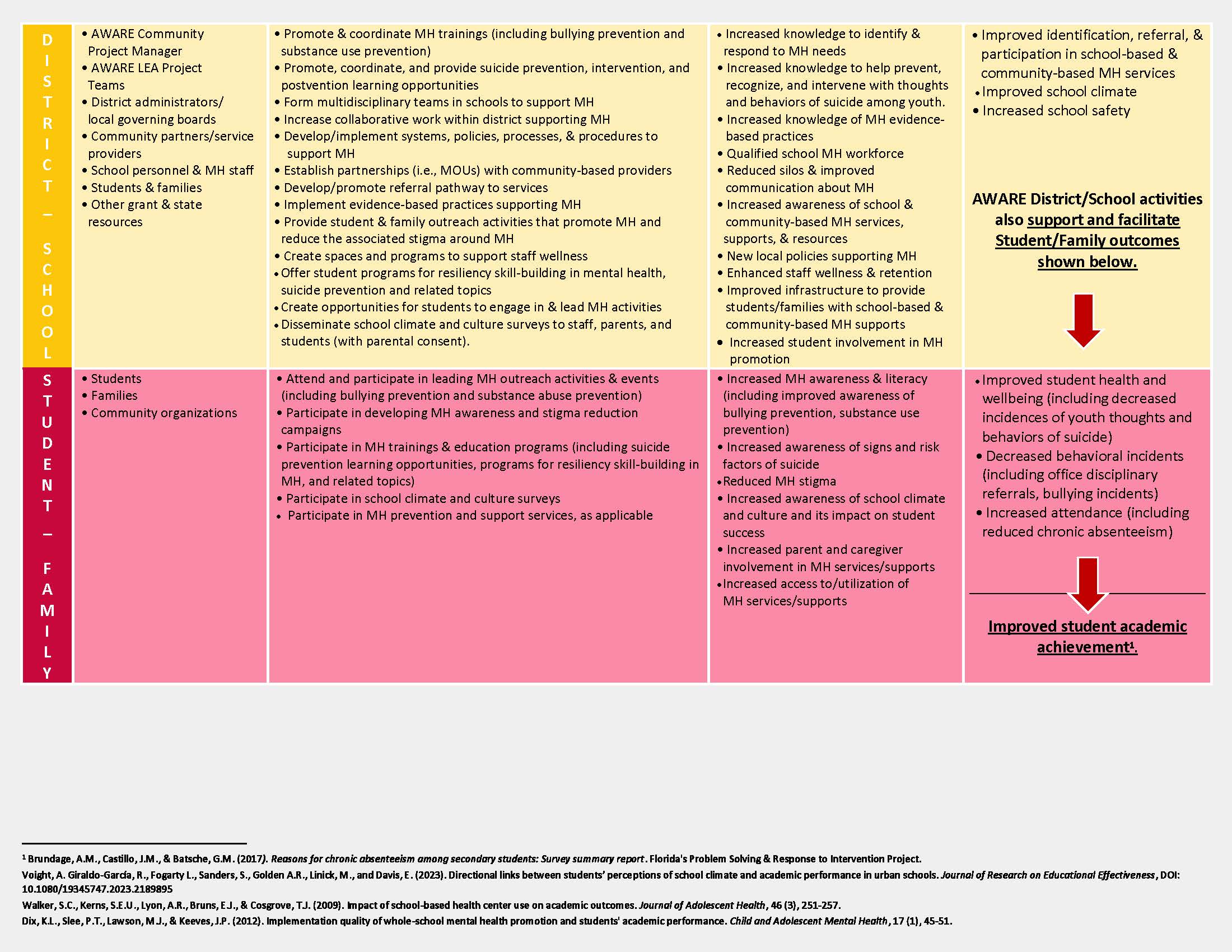Project AWARE
Project AWARE: AN ADE AND AHCCCS Partnership for Behavioral Health In Schools
Arizona Department of Education, in collaboration with Arizona Health Care Cost Containment System (AHCCCS), is a grantee for two Project AWARE grants, each lasting five years. Project AWARE supports the development and implementation of a comprehensive plan of activities, services, and strategies to decrease youth violence and support the healthy development of school-aged youths.
To learn more about AHCCCS's role in school behavioral health services, visit their webpage here.
Our Goals
Background of Project AWARE
Project AWARE (Advancing Wellness and Resiliency in Education) is a federal initiative to develop a sustainable infrastructure for school-based mental health programs and services.
Using grant funding from the Department of Health and Human Services Substance Abuse and Mental Health Services Administration (SAMHSA), Project AWARE seeks to build and expand the capacity of State Educational Agencies, in partnership with State Mental Health Agencies, overseeing school-aged youth.
By building or expanding capacity, the program advances wellness and resiliency in education by increasing mental health awareness in schools across states, territories, and tribal communities.
Our Work
Comprehensive school mental health provides an array of supports and services that promote positive school climate and increase school safety through the use of a tiered approach that addresses prevention, early identification, intervention and treatment of mental health concerns in school-age children. The Project AWARE team promotes building comprehensive school mental health systems at our six districts and beyond through our relationships, partnerships, experience, and expertise in mental health. If you would like to learn more, please feel free to connect with us at [email protected].
Do you want to learn more about comprehensive school mental health systems but don't know where to start? Are you looking for information and resources to address mental health needs in schools? No matter where you are in your learning journey, the Project AWARE team will assist you! For technical assistance, reach out to us at [email protected]
In partnership with Arizona Healthcare Cost Containment System (AHCCCS) and Arizona Department of Health Services (ADHS), the ADE Project AWARE team developed the School and Behavional Health Partnerships Resource Guide, which is intended to assist school districts and behavioral health providers in creating seamless partnerships that support Arizona's youth and families.
Arizona Department of Education received two Project AWARE grants: AWARE I (2018 - 2023) and AWARE II (2021 - 2026). ADE is able to support 3 school districts each grant period.
AWARE II Sub-Grantees:
- Glendale Union High School District
- Roosevelt School District
- Maricopa Unified School District
School personnel may be trained in one or more of the AHCCCS-approved suicide prevention trainings, at least once every three years, to meet the legislative requirements of the Mitch Warnock Act (ARS 15-120). Through Project AWARE, the training options below are scheduled throughout the year both in-person and online. Additionally, training may be available through Arizona Suicide Prevention Coalition and various community organizations.
We offer suicide prevention trainings to school staff and the community. Read more about the trainings we offer below:
- Youth Mental Health First Aid: Virtual Training with A Live facilitator. This is an interactive, online training. The training itself is 6 hours and requires approximately 2 hours of pre-course work. Cameras are required to stay on throughout the training. This training is offered through several community organizations. Please email us at [email protected] to set up a course for your campus.
- Suicide Alertness for Everyone (SafeTALK): In-person training, English language. This course take approximately 3.5 hours. Please write to us if you need assistance connecting with a trainer.
Interested in a Training?
Helpful links and resources
For more information and resources, check out Project AWARE's Padlet here!
Contact Us
For additional information, resources, or questions, please contact the Project AWARE Inbox at [email protected].










